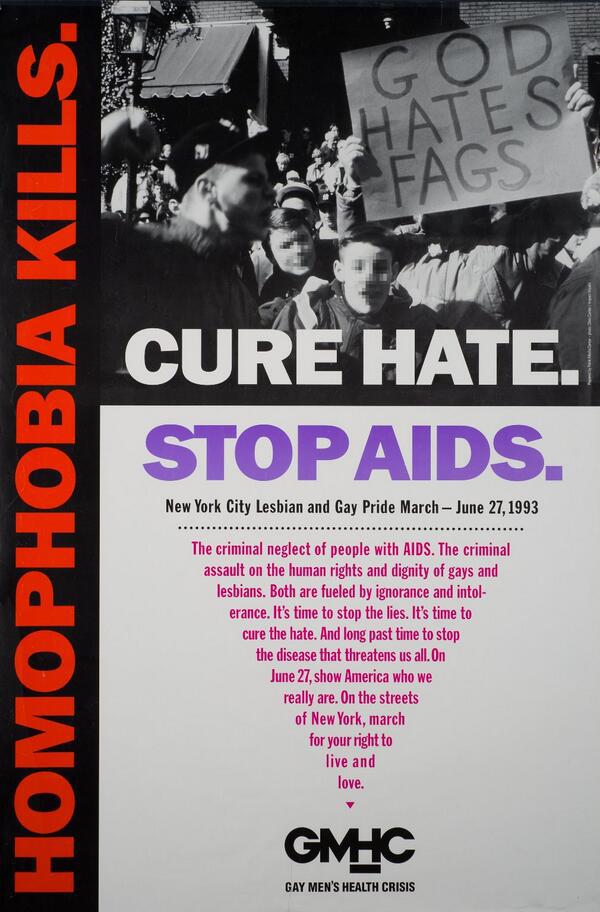Any etiological approach to the “homosexual question” encounters an unsolvable fundamental problem: the “object” of research is taken for granted, but is never rigorously defined. The aim is thus to establish “the cause of homosexuality” without considering that “homosexuality” is an constructed entelechy in the context of a certain regime of affections and pleasures. (Llamas, 1995)
Biopower is a political regime that emerged in the West with the establishment of capitalism. Unlike the previous regime, based on the right of the Sovereign to make one die or let one live, biopower is based on the control and administration of life. It is now a matter of make one live. Foucault first wrote about this in the first volume of his History of Sexuality (The Will to Know), published in the mid-seventies. Almost a decade later, on June 25, 1984, Foucault died of a strange illness from which not much was yet known. Soon a name was given to it and it became known that AIDS had “killed” Foucault.
But what or whom had actually killed Foucault and all those who were dying of AIDS? With AIDS and because of AIDS, at a time when the pandemic was flourishing, Foucault’s approach to bio-power seemed to lose its explanatory potential: People were dying (like Foucault himself) and the State, the decision-makers, the media “audiences”, were leaving them to die without contemplation.
Not that Foucault did not foresee the political implication of death in his original formulation. In fact, in the chapter where he introduces the term bio-power, together with the control of life (that ” to make live “), he also speaks of a disastrous ” rejection of death “. Because the management of life operates within strict normative parameters. Because, according to Butler, the exclusion of death as a political objective does not include in that “making live” (and the preservation of those lives), all lives equally. On the contrary, it can only operate “in the name of some specific form of life, and insisting on the right to produce and reproduce that form of life” (Butler, 1995). If it is a matter of preserving life, it is by no means any life.
Butler’s article, quoted above, appears in 1995 in the book Building Societies. Studies from the Heart of a Pandemic, edited by Ricardo Llamas. It brings together a set of texts that analyze how and why Western society in the late twentieth century systematically disregarded the life of certain bodies and, therefore, the need to protect them. Already with the first cases of the -then called- “gay cancer” or “pink cancer”, the media drew a line between victims (innocent) and sick people (homosexuals, above all, but also prostitutes, immigrants, heroin addicts; in short, the abnormal ones).
The portrayal of homosexuals as being responsible for the spread of the disease was a response to an association – which had already been established in the popular imagination – between homosexuality and death. In a context where the power of the Church had been displaced by the medical-scientific discourse, the sinner (sodomite) was assimilated into the category of the sick. Sickness (which is not only of his body, but also of his soul) finds its fatal destiny in death as the ultimate punishment. Although death is a “natural” process and dying is inevitable, “letting die” is a political decision. Nothing is done to save those who are considered worthy of it as a punishment for their transgression.
One can believe (naively and optimistically) that this whole terrible story has been overcome. But someone or something will always be there to remind you that it is not. For example, Jesus Silva, a lawyer and public opinion leader, said on January 19 on his Twitter account that “Ricky Martin says he is “open” to having sex with women. Women who will later transmit #AIDS to the heterosexual population”. He was immediately labeled homophobic. Silva responded by demanding his “right to reply“. However, his reply matters little if we consider that his tweet says much more with what it fails to say than what it implies with what it did said.
Ricky Martin says he is “open” to having sex with women. Women who will later transmit #AIDS to the heterosexual population
– Jesús Silva Writer (@Jesus_Silva_R) January 19, 2016
Silva makes, of course, an association between AIDS-death and homosexuality, reminding us that those archetypes are still here and living with us. According to him, the woman who has sex with Ricky Martin will obviously be infected with the AIDS that he carries (because, we know that Ricky is gay – he said so himself – and two plus two is four) and that woman will become the vehicle that will bring death to the hygienic heterosexual surface. Because, from his (uninformed) logic, the problem is not that all homosexuals actually have AIDS and are dying (or killing) each other. The problem is that those sick (or) homosexuals (which, from this point of view, is the same thing) are among “us” and can infect us. In short, what is a woman if not the place where men deposit their desire, but where they always hide and transport the most horrific curses? What is a homosexual if not a sick person? What is his destiny if not the tragic death to which “his” illness drags him?
![]()


